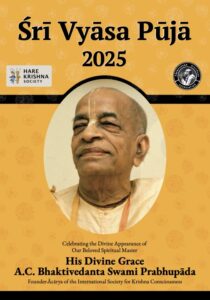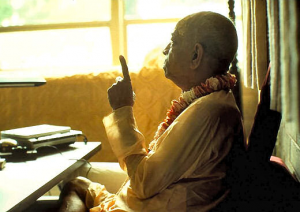Hare Krsna-below is just one point taken out in a 1974 LA lecture by Srila Prabhupada
Bhāgavata: …a point about attraction and aversion, that there’s a complaint that sometimes there’s too much aversion on the part of the brahmacārīs. But isn’t that not a quality, to a point a brahmacārī should have a healthy contempt for sense gratification?
Prabhupāda: I do not follow.
Puṣṭa Kṛṣṇa: He’s saying that sometimes the brahmacārīs, even the sannyāsīs, they may have a very strong aversion towards association with women and/or householder life, things of this nature. And sometimes the gṛhasthas will criticize the sannyāsīs and brahmacārīs that “This is fanaticism,” or it’s, to the other end, “It’s just as bad as the enjoying spirit, because you’re meditating on the same thing, but only you’re averse to it.” So what is the…? Bhāgavata dāsa’s question is “What is the condition?” Is it better to be neutral or to be averse?
Tamāla Kṛṣṇa: Neutral.
Prabhupāda:These are all fanaticism. Real unity is in advancing Kṛṣṇa consciousness. Kalau nāsty eva nāsty eva… In Kali-yuga, you cannot strictly follow, neither I can strictly follow. If I criticize you, if you criticize me, then we go far away from our real life of Kṛṣṇa consciousness.
Puṣṭa Kṛṣṇa: So is it correct to say that if we’re not Kṛṣṇa conscious, then if it’s not the gṛhastha problem, it would be some other problem?
Prabhupāda:Yes.
Puṣṭa Kṛṣṇa: We’ll find something or another to absorb our time with besides Kṛṣṇa.
Prabhupāda:No, you should always remember that either gṛhastha or brahmacārī or sannyāsī, nobody can strictly follow all the rules and regulations of them. In the Kali-yuga it is not possible. So if I find simply fault with you, and if you find fault with me, then it will be factional, and our real business will be hampered. Therefore Caitanya Mahāprabhu has recommended that hari-nāma, chanting Hare Kṛṣṇa mantra, should be very rigidly performed, which is common for everyone:gṛhastha, vānaprastha or sannyāsī. They should always chant Hare Kṛṣṇa mantra.Then everything will be adjusted. Otherwise it is impossible to advance. We shall be complicated with the details only. This is called niyamāgrahaḥ. I think I have explained.





